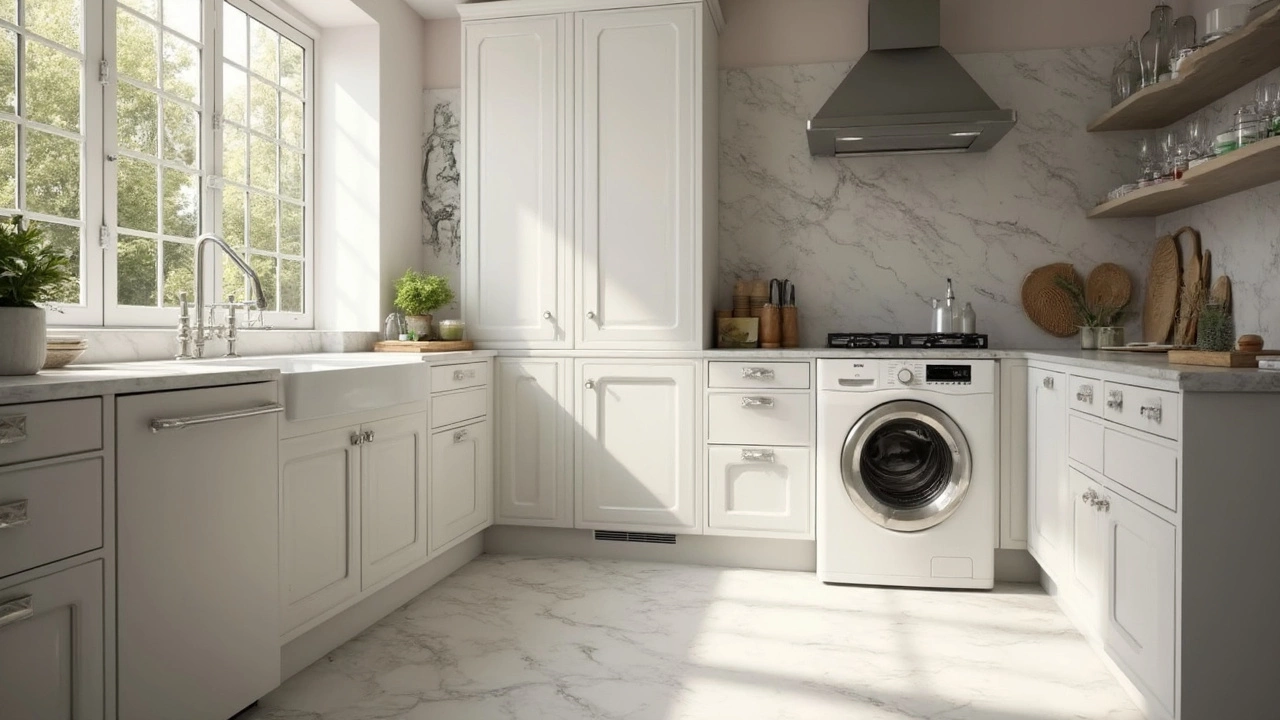When it comes to keeping clothes fresh, the right laundry appliances make all the difference. Whether you’re adding a new washer, swapping out a dryer, or just figuring out where to place them, a few simple choices can save you money and headaches.
First off, think about your lifestyle. If you run a busy household with daily loads, a larger capacity front‑load washer will cut down on trips to the laundromat. On the other hand, a compact stackable unit works great for apartments where space is at a premium. Size, energy rating, and spin speed are the three numbers to compare before you click ‘add to cart’.
Most shoppers get stuck on price alone, but the long‑term cost of running the machine matters more. Look for models with an ENERGY STAR label – they use up to 30% less electricity and water. A higher spin speed (1200‑1400 RPM) means the dryer does less work, which lowers your energy bill.
Don’t forget the drum type. Stainless steel drums are durable and resist odors, while plastic drums are quieter but can develop a smell over time. If you’re prone to static, choose a dryer with a moisture sensor; it stops when clothes are dry, preventing over‑drying and shrinkage.
For those who love gadgets, smart washers let you start cycles from your phone and get maintenance alerts. Just be aware of the privacy trade‑offs – some brands collect usage data, so read the fine print if that concerns you.
The floor under your washer and dryer often gets overlooked, but it can cause leaks, noise and even mold. Waterproof vinyl or tile is the safest bet – it won’t warp if water spills and it’s easy to clean. If you have hardwood, add a sturdy, water‑resistant mat that covers the entire footprint of the appliances.
Ventilation matters too. A dryer vent should run straight to the outside, avoiding long bends that reduce airflow. Check the vent every few months for lint build‑up; a clogged vent is a fire risk and makes the dryer work harder.When you’re planning around a laundry room, think about storage. Shelves for detergent, a roll‑out ironing board, and a hanging rack for delicates keep the space tidy and functional.
Maintenance is the final piece of the puzzle. Run a cleaning cycle on your washer once a month with white vinegar to prevent mildew. Empty the dryer lint trap after every use and give the drum a quick wipe to stop fluff buildup.
By balancing size, energy efficiency, and smart placement, you’ll get a laundry setup that lasts years without drama. Treat your appliances right, and they’ll keep your clothes looking great while keeping your utility bill in check.

GE washing machines are a popular choice for many households due to their reliability and innovative features. But are they really worth the investment? This article breaks down the quality, features, and performance of GE washing machines, offering insights into why they might be the right fit for your home. From energy efficiency to user-friendly designs, we'll explore what sets GE apart in the crowded market of home appliances.